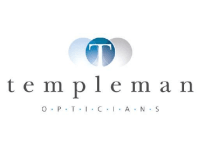Even as we age our systems age, from our skin and joints to organs and muscles, but our eyes age too. If we are young the lenses from the eyes, called the natural crystalline lens, is obvious and versatile, and can focus freely from near to far. People spanning various ages may require the application of glasses to assist them see distance or closer, however when we have been younger it’s usually because of the shape of a persons vision.
From around the ages of 40 the natural crystalline lens begins to get cloudy and more ridged, this means that the lens can’t focus along with previously. This condition is known as presbyopia. Everyone’s eyes age at different speeds, though the older we get the harder the lenses cloud and become stiffer, as well as the probability of needing help reading or with near vision gets to be more apparent, as well as for many seniors cataracts begin to develop.
When Do you need to See an Ophthalmologist or Eye Clinic?
While a lot of the population wear glasses from a young age and can regularly see an ophthalmologist or visit a close look clinic, you will find signs search out for as you receive older to suggest you’ll want to go to a specialist to read or near vision solutions;
Incapable of read or do other close tasks and finding you have to maneuver things out-of-the-way to read or see detail.
Which you get headaches when reading or doing close tasks.
Finding it challenging to read terms and conditions in low light.
Developing achy eyes when reading or doing close tasks.
These signs means you have to be seen to get a thorough eye exam and discuss reading or near vision solutions.
Reading and Near Vision Solutions
There are many options you might be capable to choose between in relation to considering reading and near vision solutions.

Off the Shelf Reading Glasses – they are reading glasses that you can buy at most supermarkets or pharmacies, and even other shops now too. They can be inexpensive and may even be the first ‘quick fix’ you purchase when first noticing you need coaching with near vision. While they could be a great choice to begin with, specifically if you are looking forward to a consultation to determine an eye fixed specialist, they could not fully correct how well you see. Off the shelf reading glasses cannot correct if you have an alternative reading prescription in each eye additionally they cannot correct any astigmatism you could have. While they may be a good interim option, you should ensure you visit a close look clinic to get a full eye exam.
Prescription Reading Glasses – they’re glasses that have been custom made by an optician to adjust to using your reading/near vision prescription. They will consider any variants eye strength, astigmatism, and will nicely satisfy your face.
Bifocal or Trifocal Glasses – these glasses are suitable for people who need glasses for near, intermediate, and distance vision. Some people don’t like the need to use several couple of glasses inside them for hours bifocal glasses will correct near vision and distance vision, and trifocal glasses correct near vision, intermediate vision, and distance vision. Both choices completely customised to you personally as well as your eyes.
Treatments
Nowadays a lot of people find glasses inconvenient in order to find they don’t really participate in their lifestyle, however, there is an answer with this, medical procedures to correct near vision and/or cataracts called refractive lens exchange. Laser hair removal is very similar to cataract surgery, where the natural crystalline lens is removed using phacoemulsification as well as a new artificial lens is inserted as a substitute. For those who have a cataract this treatment will probably be called ‘cataract surgery’, however if you have this treatment purely for vision correction it’s referred to as ‘refractive lens exchange’ and definately will take away the growth and development of cataracts in the foreseeable future.
There are several different lens options that can be implanted and the one chosen is determined through your ophthalmologist taking in to account suitability, lifestyle, and your expectations. Every one of the lens options are available in a variety of strengths or can be customised on your eyes and you will find also options, called toric lenses, that can, with the below solutions, will correct any astigmatism you could have.
Monofocal – a monofocal lens implant can be used to fix distance vision only, where after surgery you will still need the using reading glasses. This is used for people that simply want to eliminate cataracts and/or are content to remain using reading glasses.
Monofocal Monovision – this is how a monofocal lens of strength lies in each eye, one eye will probably be corrected for distance then one eye corrected for reading. While many people really get on with this configuration, others cannot tolerate the gap. This choice should invariably be tried along first using either contacts or possibly a demonstration in clinic.
Trifocal or Extended Range – these lenses can correct near, intermediate, and distance vision and they are well-liked by people who wish to be glasses free whenever you can.
Every one of the above option is just an overview so if you’re considering some of the options, whether surgical or otherwise, you ought to attend for any full eye examination with a trusted eye clinic. If you are surgical options, getting a meeting using a trusted ophthalmologist, which will experience benefits, risks, and alternatives, is advised.
More information about home visit opticians please visit webpage: look at this now.
